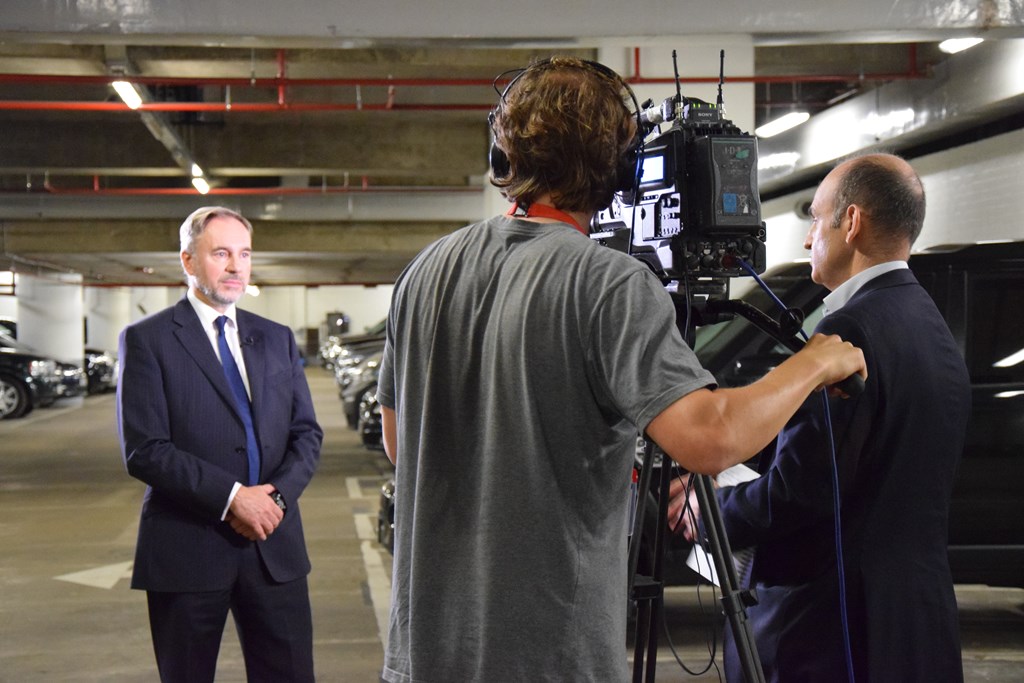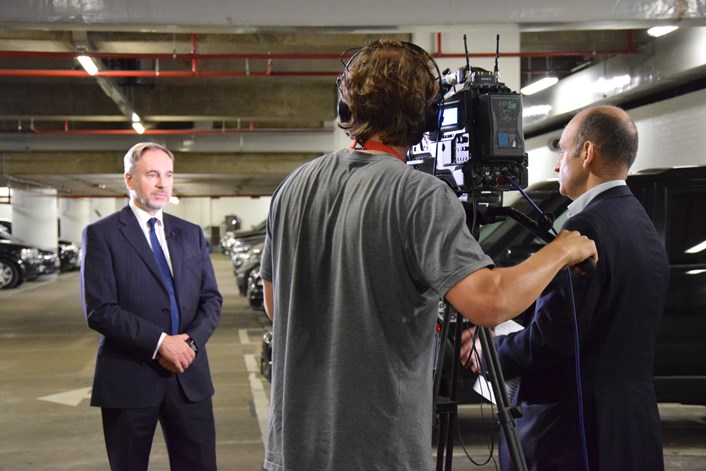
23 Sep 2018
Counter Terrorism Police harness popularity of BBC's 'Bodyguard' to try and attract new recruits
Want to know what it’s like to be a real police bodyguard?
Counter Terrorism Policing has given unprecedented access to one of the Met’s elite protection officers following the success of the BBC One hit drama starring Richard Madden and Keeley Hawes.
More than 10million people have tuned in to the series to follow the explosive storyline, which features a fictional Personal Protection Officer (PPO) as he defends the Home Secretary and works to uncover her attacker.
To coincide with the show’s finale, Counter Terrorism Policing lifted the lid on the life of London’s specialist team working around the clock to keep VIP’s and members of the royal family safe.
It is hoped that by revealing the truth behind the roles, officers can entice a new generation of bodyguards and other dedicated staff to consider a career in Counter Terrorism Policing.
“While the on-screen action bears little resemblance to the reality of fighting the terrorist threat in the UK, there’s no doubt that the show has captured the imagination of the public and generated huge interest in Counter Terrorism Policing,” said the UK’s most senior female CT officer, Deputy Assistant Commissioner Lucy D’Orsi.
“We have seen thousands of people visiting our recruitment page as a result of ‘Bodyguard’ and although the drama stretches reality to the limit, the programme does capture the passion and drive of our officers and staff as they work to keep the public safe.
“And you don’t have to join as an officer and work your way up to become part of the team protecting our national security, there are plenty of opportunities to join us straight away as police staff in specialisms such as digital, IT and communications.
“As long as you have the right skills, enthusiasm and dedication, we would love to hear from you.”
For anyone interested in becoming a real-life bodyguard, the years of training and hard work may well be worth it.
The Met’s Royal and Specialist Protection Command took the unusual step of allowing the BBC to film a PPO whose credentials include protecting the former Home Secretary, now Prime Minister Theresa May, and members of the Royal family.
Detective Chief Inspector Steve Ray knows only too well the pressures of keeping such high profile figures safe and explained that whilst he doesn’t recognise the character in the drama, he does recognise the excitement of the job and the rewards it can bring.
“There’s no doubt that I have seen things I never thought I’d see and been to places I never thought I’d travel to, but my day-to-day life bears no resemblance to the programme,” he said.
“Rather than work in isolation like the lead character, I’m part of a large and committed PPO team working to completely protect our principals - and it’s fair to say you wouldn’t last long in our team if you cross the line to form too close a relationship with the principal you were protecting!
“But being able to assess threat and risk, and have the courage to step in when you sense danger, that is real and is a big part of my job.”
Of all the inaccuracies, it is the depiction of relations between the police and MI5 which has disappointed DACSO Lucy D’Orsi.
“We have all enjoyed the dramatised storyline over the last few weeks but it is just that – a fictional drama designed to entertain,” she said.
“CT Policing sees officers and staff from across the UK working alongside government and intelligence partners to keep communities safe from terrorism. That relationship between the police and the security services is the cornerstone of the Counter Terrorism strategy in the UK, and following last year’s tragic attacks in London and Manchester the police and intelligence community work hand-in-glove to keep our communities safe.”
However, there are aspects of the show which better reflect the reality of working within Counter Terrorism Policing.
The number of female and BME officers in the programme was labelled a ‘PC fantasy’ by some critics. But Detective Inspector Inderjit Kaur, a female officer of Sikh background, begs to differ.
"At the time this show was being filmed, we had at least three female officers at the very highest level within CT Command," she said.
"I myself am in charge of a team of CT detectives responsible for bringing dangerous terrorists to justice, so I would absolutely disagree with those who say it was fantastical to think so many women or people from minority backgrounds could rise to that level within the police service.
"As long as you have the right skills and a lot of dedication you can rise all the way to the top, regardless of your background.
"Are we completely reflective of the communities we serve? Not yet, but we are working hard to make it better. In the 16 years I have been in the police service I have seen us take huge steps towards bringing in the type of workforce diversity which makes Counter Terrorism Policing better equipped to serve the public."
Whether you wantto join as an officer and work your way through the ranks, or become a member of the police staff delivering vital digital exploitation, IT skills or other specialisms, CT Policing has the job for you.
Visit our recruitment page at counterterrorism.police.uk/careers/ to find out more, and you may well find yourself protecting the Home Secretary some day.
Contact information
Communications office
By phone: 0800 538 5058
By email: press.office@npcc.police.uk

